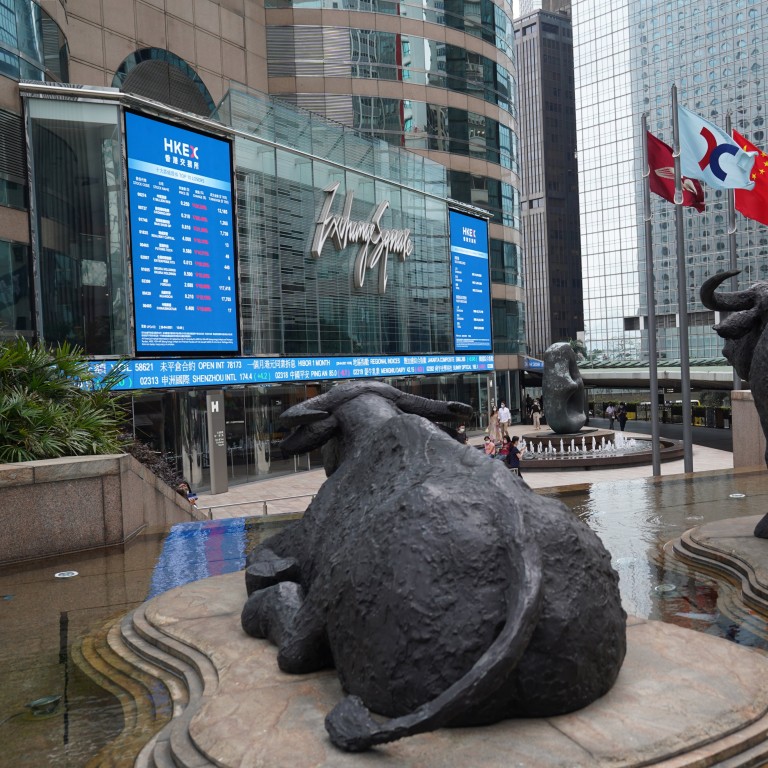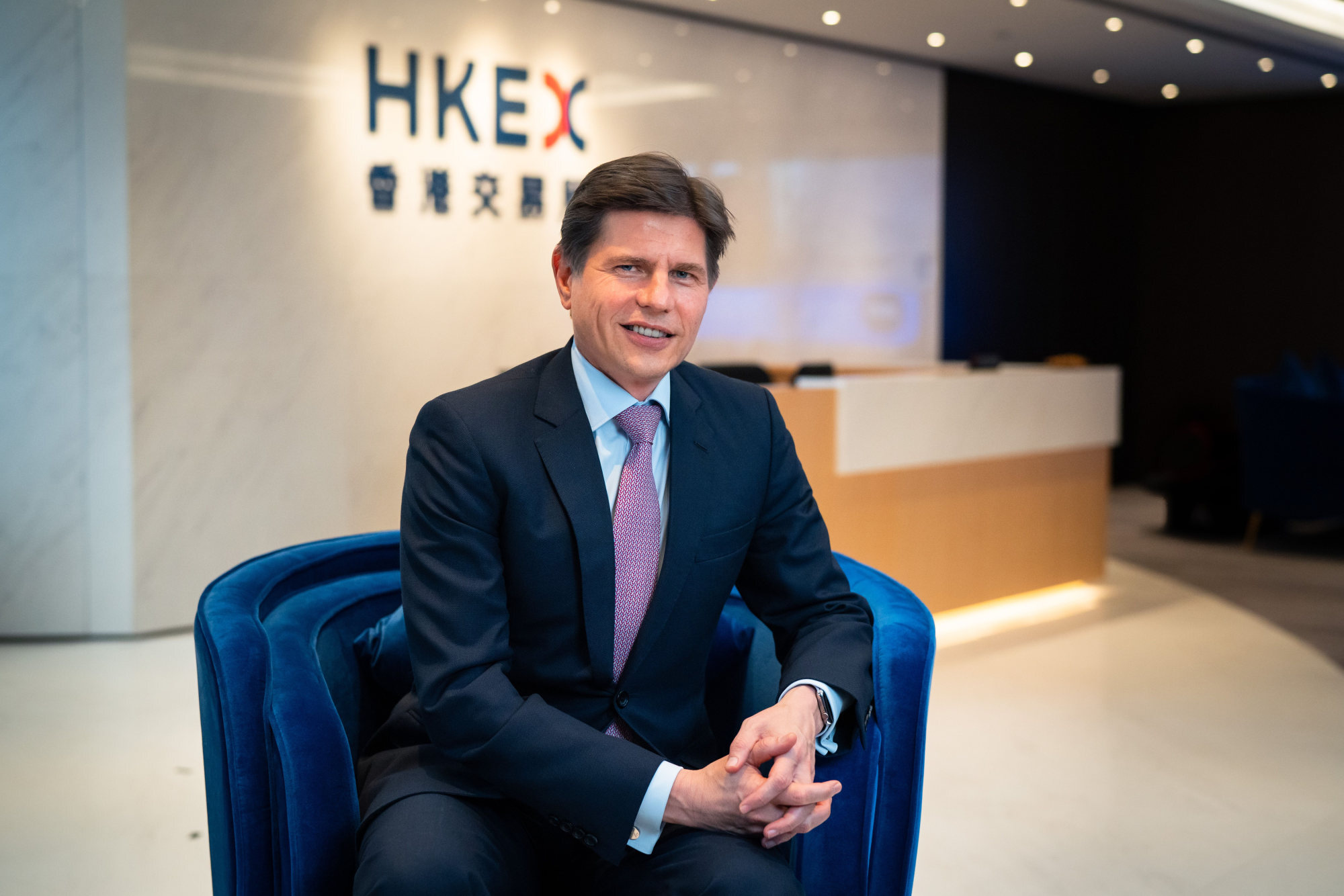
Global investors are looking past US-China spats to keep market reforms and growth potential in their sights, HKEX’s boss says
- China attracted US$142 billion of foreign direct investments in the first 10 months this year, 23 per cent higher compared with a year ago
- As China’s reforms continue to progress, international investors are becoming more closely integrated with the mainland market, says HKEX CEO Nicolas Aguzin
China remains on top of international investors’ agenda as they continue to pour billions of dollars into Chinese bonds and equities despite the pandemic and political tension between Washington and Beijing, according to the boss of Hong Kong’s bourse operator.
“We’re not seeing a decoupling at all. The facts actually point to exactly the opposite,” he said in a video message recorded for the third instalment of the China Conference organised by the South China Morning Post. “Hong Kong has a key role to play in connecting China and the world.”
China attracted US$142 billion of foreign direct investment (FDI) in the first 10 months of this year, 23 per cent more than a year earlier, making it the second largest FDI destination after the US.

International investors’ combined holdings of Chinese bonds and equities stood at 7.5 trillion yuan (US$1.18 trillion) at the end of September, 30 per cent higher year on year and tripling in the last four years, Aguzin said.
US mutual funds and exchange-traded funds had US$43 billion of net assets invested in China as of August, a 43 per cent jump year on year, he added.
“If the past two years have shown us anything, it’s that despite the headline tensions we read about over our morning coffee, reforms have continued to progress, and international investors are becoming more closely integrated with China’s market,” Aguzin said.
“I don’t believe that trend will change. Rather, I see it as the beginning of a wholesale transformation in global markets. Hong Kong has a major role to play in that,” he said.
Beijing this year has granted a series of licences to Wall Street banks and overseas asset managers as it further opens up its domestic financial markets.
In August, JPMorgan Chase became the first foreign firm to win approval from the China Securities Regulatory Commission (CSRC) to take 100 per cent control of its securities joint venture on the mainland.
Other overseas banks like Goldman Sachs, Morgan Stanley and Credit Suisse have also taken advantage of the rule changes to increase stakes in their onshore securities businesses in anticipation of gaining approval to take full control of their ventures.
Also in August, Fidelity International received approval from the CSRC to set up a wholly foreign-owned mutual fund company in China, the second foreign asset manager after BlackRock, which got the go-ahead in June.
The HKEX’s role as a bridge between foreign investors and the mainland cannot be stressed enough. As Chinese companies represent more than 80 per cent of market cap and turnover in the city, it allows international players to invest in Chinese firms listed in the city. Moreover, the bourse has been ranked as the top IPO market globally seven times in the past 12 years.
Aguzin said that assets under management in Hong Kong had increased 21 per cent year on year to US$4.5 trillion last year, making Hong Kong the largest asset and wealth management hub in Asia.
Asset allocations by Hong Kong-based fund managers to mainland China grew 47 per cent year on year to US$337 billion last year, while investments by mainland Chinese investors in Hong Kong domiciled funds grew 18 per cent to reach US$2.2 trillion in 2020.
“While we can expect geopolitics to continue to shape the global narrative, we see heightened interdependency in global capital markets. The capital flows between East and West are deepening, and at a faster pace than ever before,” he said.
“As the world becomes more connected, markets closely integrated, and financial flows more sustained, Hong Kong is in a unique position as a facilitator, conduit, connector and interface.”


